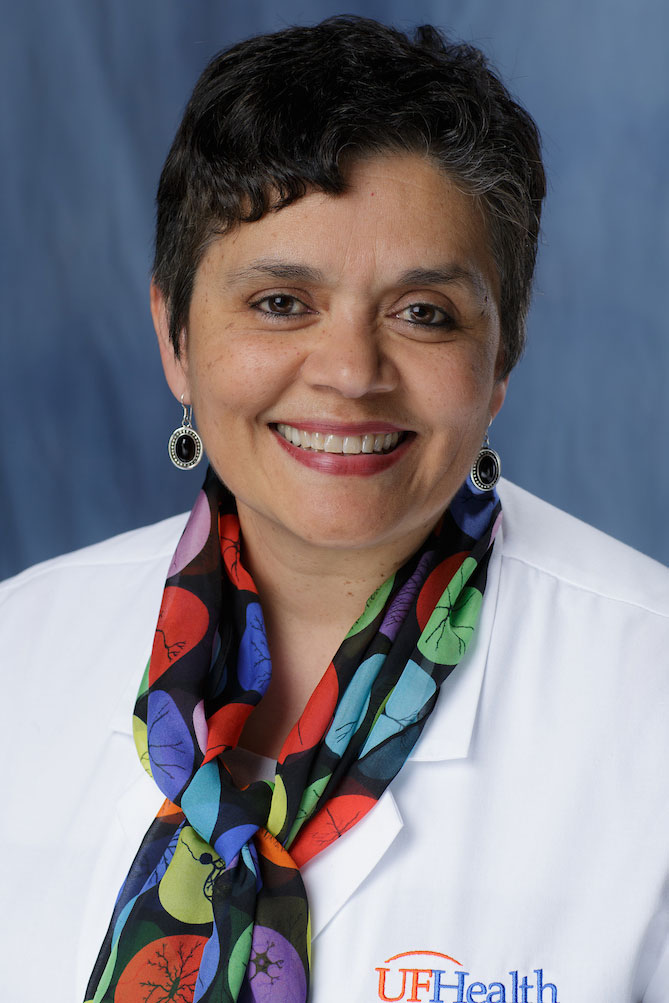By Todd Taylor

The University of Florida has joined the Aligning Sciences Across Parkinson’s (ASAP) Collaborative Research Network, a multidisciplinary, multi-institutional global effort to study the underlying causes of Parkinson’s disease and accelerate the pace of discovery through data sharing.
Malú Gámez Tansey, Ph.D., co-director of UF’s Center for Translational Research in Neurodegenerative Disease, will serve as UF’s principal investigator for a research team led by coordinating lead principal investigator Rodger Liddle, M.D., of Duke University.
Emory University and The University of Alabama at Birmingham will also collaborate on the study, which will investigate the role of enteroendocrine cells in Parkinson’s pathology.
“We are thrilled to join this important research collaborative. A single lab cannot make progress sufficiently fast for the extreme need we currently have in Parkinson’s,” said Tansey, an endowed chair of the Norman Fixel Institute for Neurological Diseases at UF Health. “Science is a team sport, and multidisciplinary approaches are needed to identify mechanisms and develop new therapies.”
The study is funded through a three-year, $9 million grant from ASAP, and UF will receive $1.8 million of the funds. The Michael J. Fox Foundation is ASAP’s implementation partner and issued the grant. Tansey said the grant will be synergistic with her team’s Parkinson Foundation Research Center of Excellence award focused on gut-brain interactions in Parkinson’s disease.
With the addition of the 14 new teams funded in this round, ASAP is now supporting a total of 35 research teams at more than 80 institutions with over $290 million in funding within its Collaborative Research Network.

